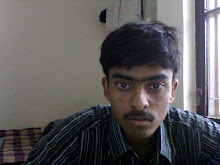In this post I am not defining or characterising intelligence. I don't think I'm close enough to characterising an attribute attached to the mind. The only thing I have done here is throw out what my mind says about what we call as intelligence. These thoughts are quite old. I do remember thinking somewhat on these lines, almost 10 years ago.
Intelligence, to me, refers to 'The ability to connect oneself well with the world'. World here does not mean what it does in most contexts. By world, I mean the surrounding system or influencing system. It doesn't have to be physical. It can be as abstract as 'physics', it can be 'mathematics', it could be a cricket match, or even 'music'. It can even be the 'IITK campus'--finally something physical :D, and another crucial example--'our own mind'. Well, let me call it as any system, with which one can interact. If you are still curious to know what the hell do I mean by '...connecting well', you'll probably read the next paragraph more carefully.
So, a more precise version: 'The ability to perform an undirected sequence of experiments with the system and draw inferences'. This is why, the system needs to be interactive. The term undirected is the key for the first half of the above statement. It means, without prior instructions or, on one's own. The second half of the statement essentially banks on the ability to recognise similarities and differences in experiences. The word experiment shouldn't make people think of LAB :D.
It is appropriate to talk about the mumbai masala tea here. On my first visit to mumbai, I was at the NSC(Nehru Science Centre), attending the astronomy olympiad camp. Once, when I slipped out of the NSC campus(slipped out because we were not supposed to go out alone :D) to make a phone call, I saw an old man making masala tea (I somehow attach masala with tea, because, the first time I had tea was not a normal tea).I remembered, I had heard that those people are making tea for a long time and they can judge what how good the tea is just by looking at its colour. This is what I meant in the above definition. No one told him to keep an eye on the colour-taste relation. This was an understanding coming out of undirected experiments. Also it demands a high ability to recognise similarities and differences in the colour. So, this was what I meant by recognising similarities and differences. Two seemingly similar objects might have subtle differences which become clear over time.
One word here: The mumbai masala tea story does not imply or justify anything. Nothing can be deduced by that. My sole intention was to clarify the meaning of what I stated. An example can do nothing to a general statement(except, probably disprove it!). I have seen people deducing things from indivisual instances. That was the reason why I wanted to make this point.
When I say undirected, I already mean we don't know it's mechanism!. This is the reason why theories which get internal about the mind aren't that beautiful :D. I always feel it is better to treat the mind as a black box for this reason. That way, I am more towards the 1st statement I made about intelligence, though it has ambiguous terms. It is indeed more beautiful than the precise version that I mentioned later. (and hence probably more useless as well- consistent what once of one of our instructors said: 'most of the beautiful things are useless' :D)
wordpress link
Sunday, August 15, 2010
Subscribe to:
Post Comments (Atom)

really good...the best definition of intelligence i have came across.
ReplyDeleteAlthough a little more is required to properly define intelligence, it is true that these thoughts have developed with the aim of defining intelligence. After I came across various (unsatisfactory!) definitions during our psychology course, I was always thinking how to define intelligence
ReplyDelete